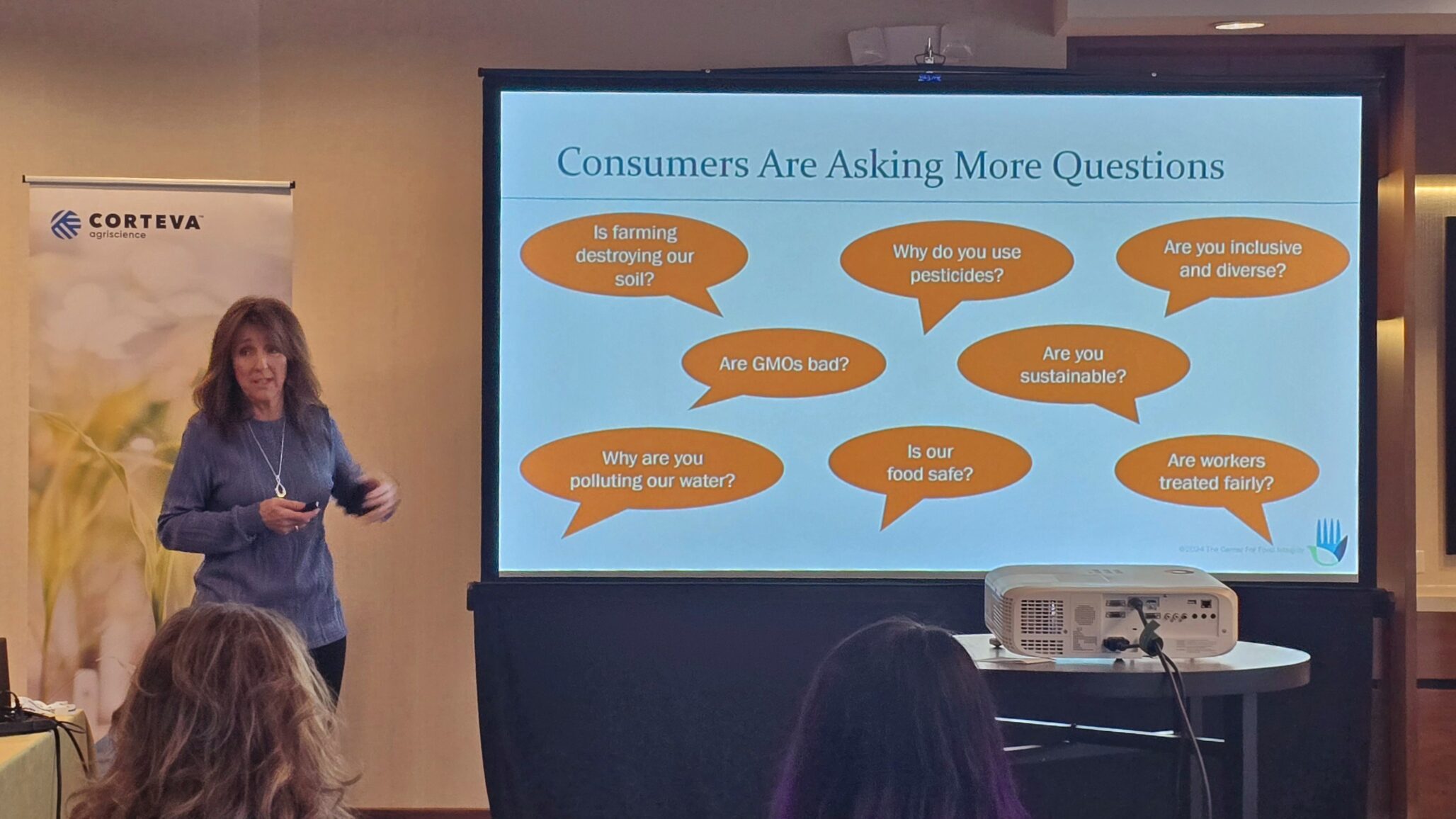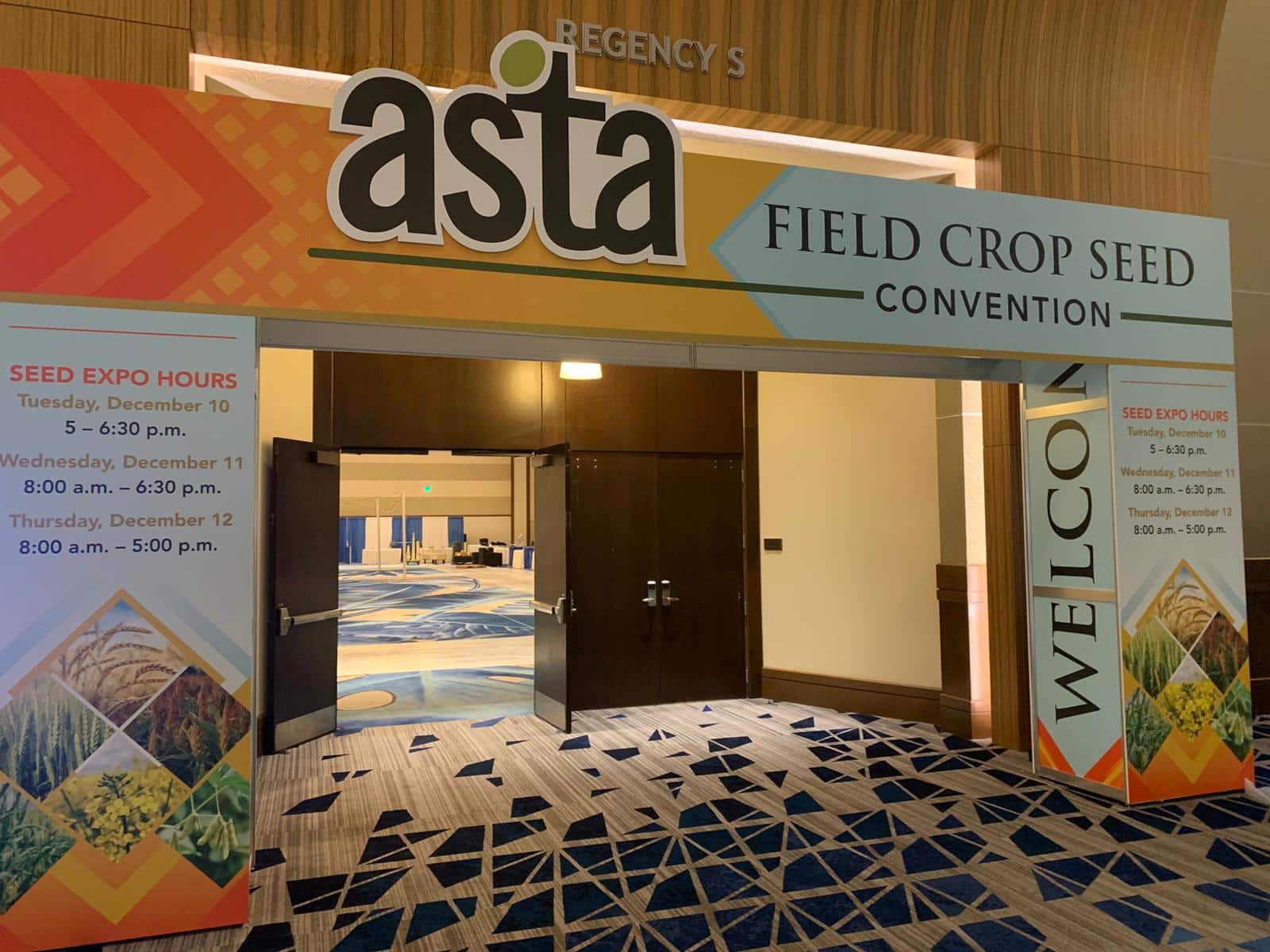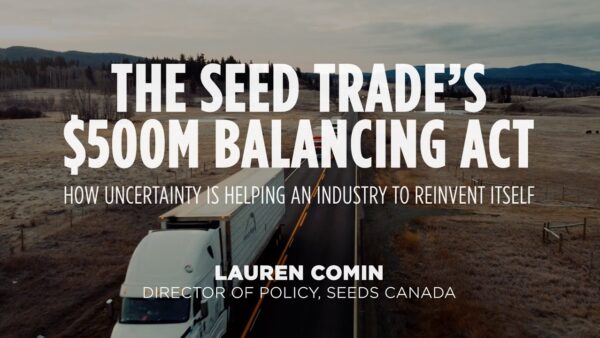Shared values can reshape the conversation on food and agriculture.
Today’s consumer landscape is vastly different than it was a decade ago. With social media amplifying opinions and misinformation, and trust in institutions steadily declining, food and agriculture professionals face a critical question: how do we rebuild trust? Jana McGuire, director of communications for the Center for Food Integrity, addressed this challenge during her presentation at the ASTA Field Crop Seed Convention. Her insights highlighted the importance of shared values, active listening and reframing conversations around ethical concerns rather than technical explanations.
The Trust Crisis
“Today’s consumer landscape is very different than it was a decade or two ago,” McGuire explained. “People see that food is being raised, grown and produced differently, and they don’t always understand why.”
She said that social media amplifies these issues at lightning speed, creating silos of opinions. Now everyone can be an influencer, and whether they have credentials or not, they can be very impactful—especially in the food and ag industry.
The result? A significant erosion of trust. According to recent research Mcguire cited from the Edelman Trust Barometer, 74% of people trust someone like them as much as they trust a scientist. This shift in trust dynamics highlights the need for industry professionals to connect on a human level.
McGuire’s said it is important to understand the questions consumers are truly asking.
“When people ask questions about food production, they’re not asking, ‘Can you do it?’ They’re asking, ‘Should you do it?’ That’s an ethical question, not a scientific one,” she said. “And we’ve been answering the wrong question for years with facts, research, and data that prove we can. Instead, we need to connect with their values and answer the question they’re really asking.”
McGuire emphasized that consumers are less concerned with whether something is possible and more focused on whether it aligns with their ethical priorities—like sustainability, family well-being, and environmental responsibility.
“Communicating shared values is three to five times more important to earning trust than providing facts and information,” she said. “People want to know you’re like them, that you care about the same things — family, safety, responsibility — before they even hear the facts.”
This approach requires a shift in communication strategies. Instead of leading with technical details, McGuire encouraged attendees to connect on a human level first.
“Focus on the greater good,” she advised. “How does what we do benefit people, the planet, and animals? That’s what resonates.”
Listening and Asking the Right Questions
McGuire underscored the importance of listening actively and asking thoughtful questions to uncover the values driving consumers’ concerns. “When you listen to someone without judgment, you’re doing more than just hearing words. You’re understanding their values, their life experiences, and what’s driving their perspective,” she explained. “It’s not about winning the conversation—it’s about respecting where they’re coming from so you can eventually share your perspective in a way that resonates.”
To do this effectively, McGuire outlined a three-step approach of “Listen, Ask, Share.” This process involves listening actively, asking clarifying questions, and then sharing values-based information that aligns with the consumer’s concerns.
“It’s not about persuading, correcting, or defending. It’s about understanding and building trust,” she said.
Reframing the Message and Building Bridges
Throughout her presentation, McGuire provided examples of how to reframe common agricultural narratives using a values-based approach.
McGuire’s insights challenge food and agriculture professionals to rethink how they engage with consumers. By leading with shared values, listening without judgment, and reframing conversations to address ethical concerns, the industry can begin to rebuild trust.
“No one cares how much you know until they know how much you care,” McGuire reminded attendees. “When we connect on shared values, we’re not just earning trust — we’re building bridges to a better understanding of food and agriculture.”













